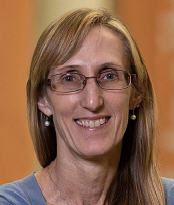GSK's Discovery Fast Track Contract Starts With Super-Moon Eclipse

By Louis Garguilo, Chief Editor, Outsourced Pharma

“Even the heavenly bodies aligned perfectly. Our partnership with GSK was announced the day of the super-moon total-lunar eclipse.”
-- Richard Leduc, professor, Department of Pharmacology-Physiology, assistant vice-dean for knowledge transfer, Université de Sherbrooke, Sherbrooke, Québec
There were high expectations for the Discovery Fast Track Challenge when it was launched by GSK’s Discovery Partnerships with Academia (DPAc) group in May of 2013. But who knew it would reach celestial coordination?
Outsourced Pharma reported in detail on Discovery Fast Track as a second round of proposals were coming into GSK last year. By then, GSK had selected seven discovery programs – including Professor Leduc’s – from the nearly 140 applications received in the inaugural round, for access to GSK’s vast compound collection and full screening capabilities.
 Now Université de Sherbrooke has signed the first long-term contract with GSK as a result of initial screening efforts through a Discovery Fast Track project. How long is long-term? I asked Carolyn Buser, GSK’s recently named vice president of DPAc. “Once we form this full collaboration, if we are successful and considering realistic timelines for an entire discovery and development partnership, I’d estimate minimally ten years to an approved medicine.”
Now Université de Sherbrooke has signed the first long-term contract with GSK as a result of initial screening efforts through a Discovery Fast Track project. How long is long-term? I asked Carolyn Buser, GSK’s recently named vice president of DPAc. “Once we form this full collaboration, if we are successful and considering realistic timelines for an entire discovery and development partnership, I’d estimate minimally ten years to an approved medicine.”
The Ten-Year Cycle
Professor Leduc’s investigational work centers on an enzyme involved in the control of iron homeostasis. He and GSK believe their collaboration can potentially lead to new treatments for patients with iron overload disorders (IOD), such as beta-thalassemia or hereditary hemochromatosis. These are inherited diseases with up to one million Americans affected with hemochromatosis.
Leduc says experiencing firsthand the extended efforts a pharmaceutical company makes in an effort to bring a drug to patients is invaluable to him, his students, and his entire university. GSK’s Buser joined this project at the point where molecules appearing to be active against the target of interest were identified: “I came in just when the team was asking, ‘Should we formalize our collaboration?’” With that decision to move forward taken, the effort now enters “early lead optimization” on some of the promising hits.
“It’s exciting because we really have a best case scenario,” explains Buser. “We’ve identified more than one compound series, and are working towards a medicinal chemistry effort to see if those core structures can be further developed.” The process will include efforts to increase potency, selectivity for the specific target, cell and in vivo activity – all the characteristics to take an oral small-molecule inhibitor into the clinic. The entire lead optimization process can range from two to five years. To then get the candidate into the clinic takes another 18 months or so. During that period, GSK does safety assessment-type studies, looks at different species, makes dose predictions, and files paperwork for human study. “Hopefully, it’ll take us two years in human studies to get what I would call proof of clinical concept,” says Buser.
Some Orbital Outsourcing
Interesting to Outsourced Pharma readers, Buser says the Leduc project will include outsourcing, similar to any R&D effort at GSK.
Leduc’s laboratory in Sherbrooke will handle much of the biochemistry and biology, with the medicinal chemistry and DMPK efforts leading to the clinical candidate selection performed at GSK and/or a CRO. GSK takes on overall responsibility for safety studies, although some of those studies and activities can be outsourced.
Buser of course can’t speak specifically about the CRO(s) involved, but when gently pressed, says that “in fact a lot of outsourcing is done in Asia as well as locally” – meaning the U.S. and U.K. “It’s really a mixture,” she says. “When it comes to selecting our vendors for utilization, we really have become a well-oiled machine throughout GSK.”
One thing Buser says is changing at GSK is the focus on selecting CROs with broader service offerings. “We’re working with CROs who combine DMPK with chemistry, as well as other activities,” she says. “As pharma evolves, we’re also continuing to evolve our outsourcing models. I think it is a great use of flexible resources.”
The Enthusiastic Academician(s)
Back to Professor Leduc, he remains, well, dare I say, star-struck.
“It’s quite a shock,” he tells me from the Sherbrooke campus, located 300 miles due north of my office in Albany, NY. “I’ve been in this field for 20 years. Our lab has consistently been supported by government grants, but this is the first time something like this has happened,” he says. The GSK relationship started with Leduc searching the Internet for programs or partnerships directed at academia. “I was convinced the protein I was working on had a great potential for tractability,” he said. “I found Discovery Fast Track and applied, first of all because it was so simple: Five questions I could answer with about a paragraph for each. I mean, the ease of application – it took me 20 minutes to do it.”
Leduc received a call that August to see if he would be willing to visit GSK in Philadelphia. “After that, things happened really quickly,” he says. “Within less than a year, we got hits and that’s where we are now.”
I ask Leduc, who is also affiliated with the Institut de Pharmacologie de Sherbrooke, if there was concern in initially providing Big Pharma with research information. “I think it’s a recurring theme for academic PI’s [principle investigators] that pharma will encompass your lab and work. So the initial concern was there. But when relationships and now contracts are transparent from the beginning, concern dissipates. That’s what happened.”
“The possibility of actually being a ‘drug hunter’ was alluring,” Leduc continues. “We teach all the different phases of drug discovery and development. However, when GSK is providing an opportunity to live the ups-and-downs, and be a part of answering the actual questions driving you from one milestone to the other – and hopefully towards a treatment for people living with these diseases – it’s invaluable.”
Buser says DPAc has been actively seeking out that type of enthusiasm for forming collaborations, as well as the “really cool science” at universities, since 2010. More recently, UC San Francisco formed a collaboration with GSK to promote early-stage research aimed at new therapies for cancer, obesity and antibiotic resistant bacteria, and researchers at UC San Diego’s School of Medicine and Moores Cancer Center announced they are working with GSK on a bench-to-bedside project to treat leukemia and other diseases by eliminating cancer stem cells.
However, since DPAc can’t visit all the universities and researchers, it introduced Discovery Fast Track as a way of getting academia to come to GSK. The program is now open to Europe as well as North America. Asia may be in the future.
“This no-ties approach to the initial screening is also so we can learn whether or not we like each other,” concludes Buser. “Once we form this full collaboration, it could be a ten-year partnership if we’re successful. You need both sides to be really enthusiastic and excited about the program. Discovery is difficult; it really takes people thinking every day, ‘I’m excited. I want to make this work. If we work through the hard times, together we’ll get to the rewarding times.’”
And, perhaps, it helps when the planets align just so.
